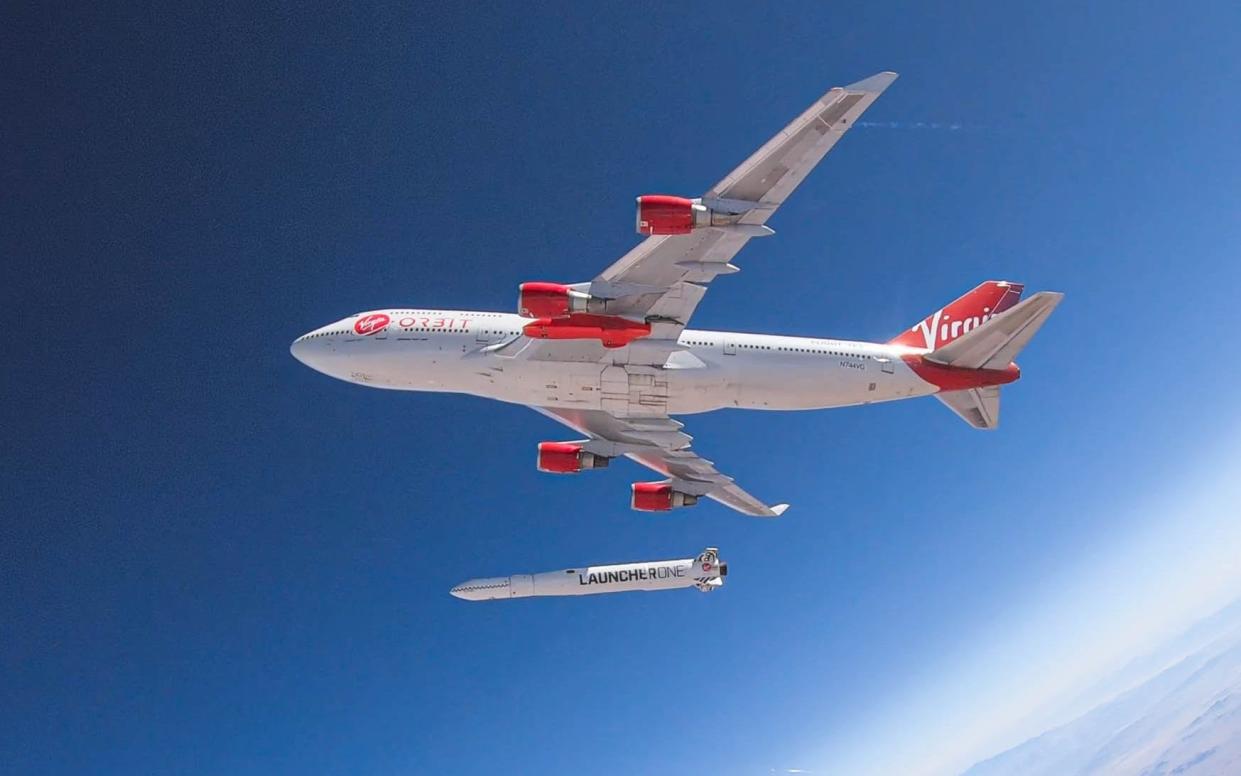No hope of UK rocket launch until 2024 after Virgin Orbit failure

Britain has little hope of hosting a successful orbital rocket mission this year, space officials have admitted, after the failure of Virgin Orbit's "Start Me Up" satellite launch in January.
Staff at the Civil Aviation Authority (CAA) have privately told members of the space industry that there is unlikely to be another mission in 2023, according to two sources.
Virgin Orbit had previously said it hoped to return to Cornwall for a mission before the end of the year.
However, an ongoing investigation into its failed launch at the start of the year and a financial crisis at the company mean that ambition is now highly unlikely to be realised.
Other launch operators are still in the process of securing UK licences, a process that can take more than a year, and are not expected to be ready before 2024.
Virgin Orbit's January launch, which had originally been targeted for the summer of 2022, failed after its rocket's fuel filter became dislodged, starving one of its engines and causing it to crash back to earth.
The breakup caused a total loss of the rocket’s payload of nine satellites and triggered an investigation by UK authorities and the Federal Aviation Authority in the US.
These inquiries are still ongoing and are likely to take several more weeks. Officials expect Virgin Orbit to conduct its next mission from the US and typically take six months to prepare between launches. Even if it chose the UK, it would need its licences refreshed.
Prospects of a UK mission this year have been further dampened by a financial crisis at Virgin Orbit that has seen it place most of its staff on unpaid leave as it attempts to raise more cash or sell itself.
Colin Macleod, head of space regulation at the CAA, said: "It is not for the UK Civil Aviation Authority to set any company’s launch schedule. For all vertical and horizontal activity, it is determined by the launch, spaceport and range operators and primarily their technical and operational readiness."
Virgin Orbit, launched by billionaire Sir Richard Branson, operates by flying a Boeing 747 to high altitude, before dropping a rocket from under its wing which then blasts into space.
The company has conducted six missions in total, five from the US and one from Cornwall. Of those, two have ended in failure, including the UK mission.
Sir Richard’s attempt at a UK launch was supposed to be a British first: launching commercial satellites into space from UK soil for the first time.
Virgin Orbit has burned through close to $1bn to make Sir Richard’s rocket company dreams a reality. But since going public in 2021 its share price has plunged by more than 90pc.
On Thursday, the company said in a stock market notice it was in “discussions with potential funding sources” and exploring “strategic opportunities”.
Separately, a UK space company has claimed that Virgin Orbit’s mission could have ended in a “near miss event” after its rocket burned up close to the Canary Islands.
In a submission to MPs published by the Science Committee, Newton Launch Systems claimed a “small change in trajectory could have easily caused a direct impact”.
Virgin Orbit’s rocket was filmed burning up by people on the island of Lanzarote.
The space mission had planned for potential “splashdown” zones with shipping traffic on alert and, despite the mission failing, the rocket debris came down in the location expected.

